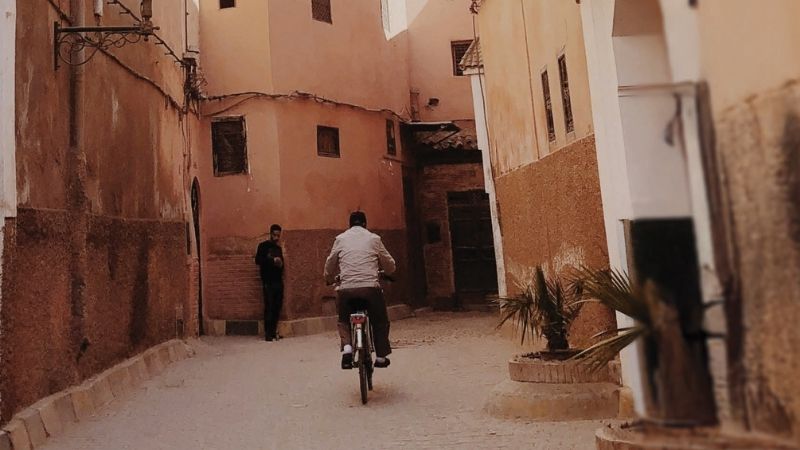The scent of childhood memory
Editor’s note: In 2019, Aatish Taseer wrote a cover story for TIME magazine titled ‘Divider-in-chief’, detailing his disenchantment with Prime Minister Modi. Soon after, Taseer—born to an Indian mother and a Pakistani father—became persona non grata in India. His Overseas Citizenship was revoked by the Indian government for allegedly concealing information about his Pakistani father Salman Taseer (who was assassinated in 2011 while he was serving as governor of the Punjab province in Pakistan). He was effectively banned from visiting the two women who raised him: his mother, journalist Tavleen Singh, and his grandmother (who passed away in 2024).
In his new book ‘A Return to Self: Excursions in Exile’—part-memoir, part-travelogue—Taseer reflects on the geography of identity and the places that shape his identity.
A Return to Self: Excursions in Exile by Aatish Taseer has been excerpted with the permission of HarperCollins.
I remember as if it were yesterday that distant afternoon on which I first smelled oudh. I was in my grandmother’s house in Delhi. I was thirteen, maybe fourteen. We had a family perfumer, or attarwallah, a man of some refinement, who came to us from Lucknow—a city that serves as shorthand for high Indo-Islamic culture. We didn’t know the attarwallah’s name, or how he knew to follow us from address to change of address. But he came without fail two or three times a year. A slim, gliding figure, with a mouth reddened from paan, or betel leaf and areca nut, the attarwallah produced his wares from carved bottles of colored glass that he carried in a black leather doctor’s bag.
He showed us scents according to which season we were in. So in winter, musk and patchouli; in summer, white flowered varieties of jasmine—of which there are some forty-odd in India—as well as rose and vetiver. In the monsoon, he brought us mitti attar, which imitates the smell of parched earth exhaling after the first rain (mitti means “mud” in Hindi).
The perfumes came from the medieval Indian town of Kannauj, which is a seventy-five-mile drive west of Lucknow and which, like its French counterpart, Grasse, has a tradition of perfume manufacturing several centuries old. Once he had drawn his perfume out on white cotton buds at the tips of long, thin sticks, the attarwallah lingered over his customers, telling stories of the various scents and reciting the odd romantic couplet of Urdu poetry.
It was this attarwallah’s son who came one day to see us, bearing news of his father’s passing—and of oudh. It was immediately apparent that the attarwallah’s son was a man apart from his father. He had kohled eyes and wore drab beige trousers, and where his father had been full of Old World charm, the young attarwallah was oily, pushy, and a tiny bit sleazy. Once the women of the house—my mother, my grandmother, my aunts—had commiserated with him over his father, they took an instant aversion to him.
It was winter. Orange-barred heaters glowed in the room where the attarwallah and the women sat. I was listening to them talk of quality and seasonability when the young perfumer, with all the indelicacy of a greenhorn, announced, “I have some oudh.”
A hush fell over the room.
“How much?” My Mother whispered, as if the young perfumer had tried to sell her hashish and not perfume.
“What’s oudh?” I said, no doubt in response to the magical effect this word had had on the room. The young attarwallah, perhaps relieved to see a friendly face in this tough crowd, was upon me like a sprite. I was drinking masala tea and, before I could say another word, he let fall a single drop of oudh into the cup.
“Drink it now,” he said with a smile.
I took a sip and—my God!—my senses were scrambled. I was engulfed by a synesthesia as pure and overwhelming as any Baudelaire ever knew. It smelled—or did it taste?—like a deep, woody mustiness, a kind of fragranced shade, the tantalizing cool of a covered bazaar. It was familiar, almost banal, like the scent of sacks of grain and spice in an old godown, but also somehow glamorous—sensual, velvety. It was heavy, enchantingly in lockstep with the smoky winter day outside, but not lugubrious. It drew me nearer—to smell a little was to want to smell more—but it never fully gave up its secret. It produced an illusion of comfort, like that of an old shahtoosh shawl, but it was arousing, too, stirring memories of places I had never been, sensations I had never known. No sooner had that first layer peeled away than I sought to possess it, like a man in a fever dream clutching at the air.
Part of what I was feeling had to do with the nature of smell itself. Of the senses, smell alone has a direct line to our limbic system, the part of our mind that deals with emotions and memory. The urgency we feel in the midst of a profound odor-related experience, of memory rushing ahead of words and reason, can be physiologically explained: the olfactory nerve sends signals directly to the emotion–memory part of our brain without going through the relay junction of the dorsal thalamus the way the other senses do.
I came out of my reverie to see an inert drop of oil colliding aimlessly against the porcelain edge of my teacup. I was hooked. I wanted some oudh, and I wanted it then and there. My mother shook her head. A vial of oudh, even in the early 1990s, in an India creeping out of socialism, cost several hundred dollars.


 souk picks
souk picks